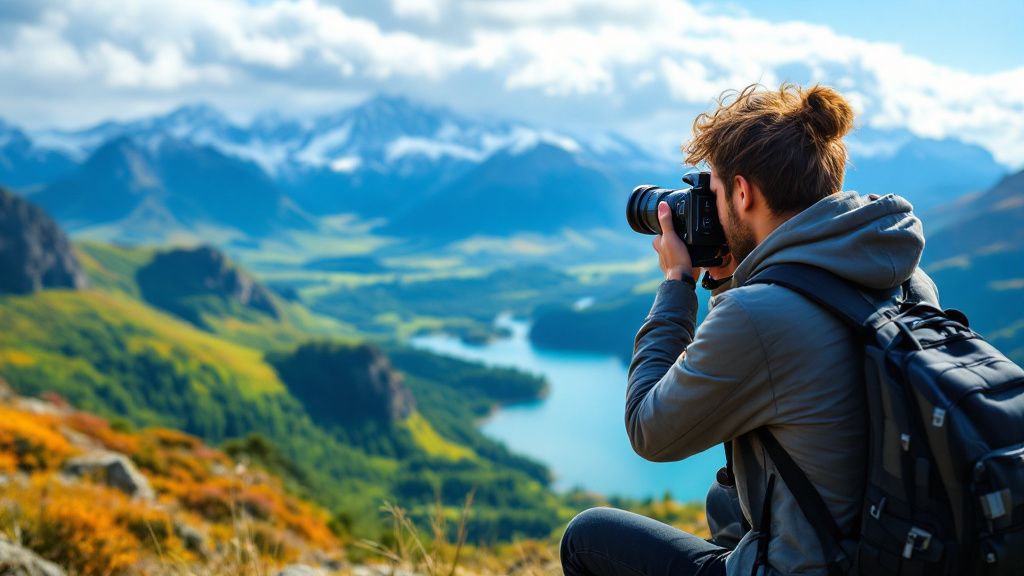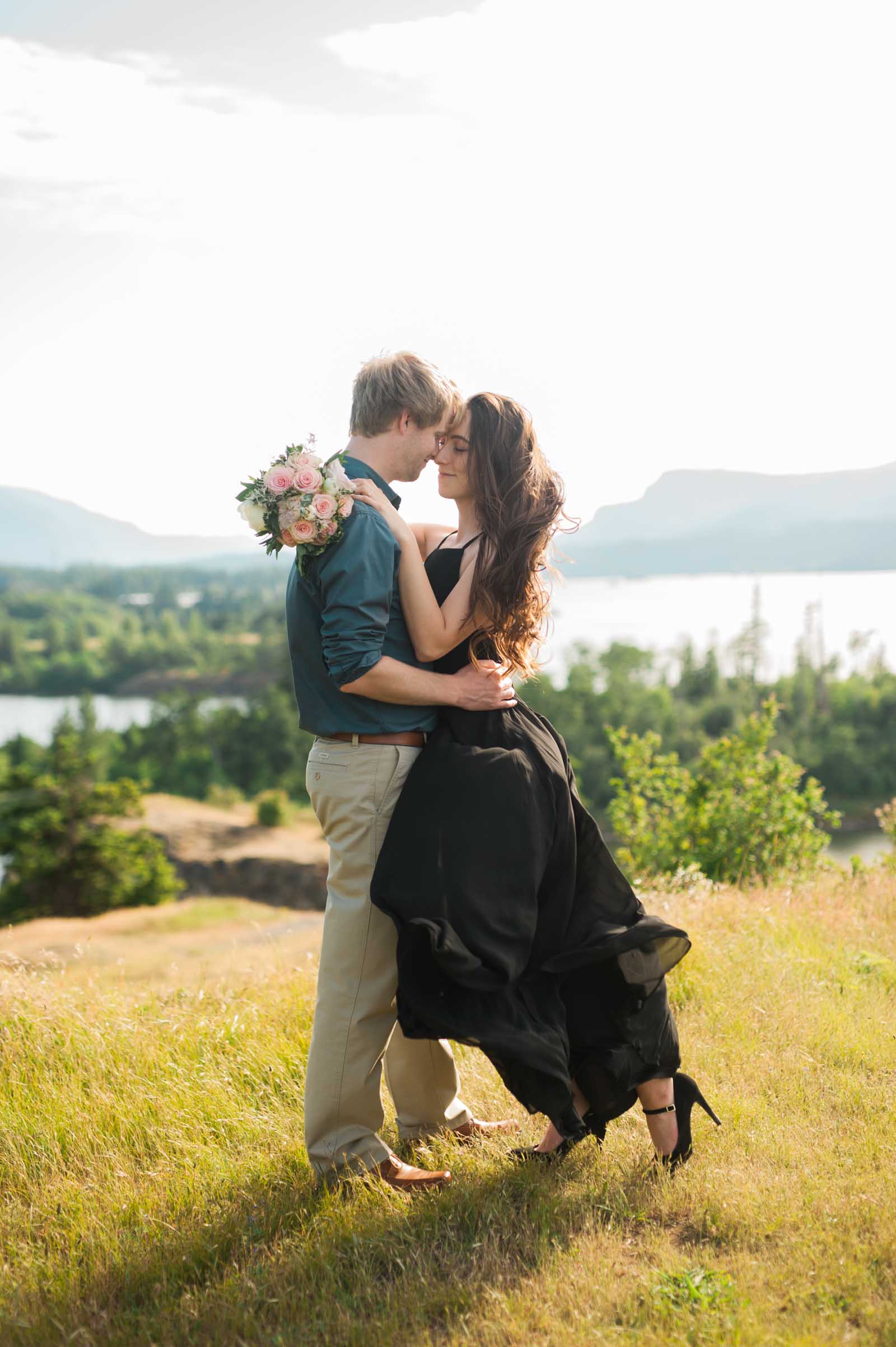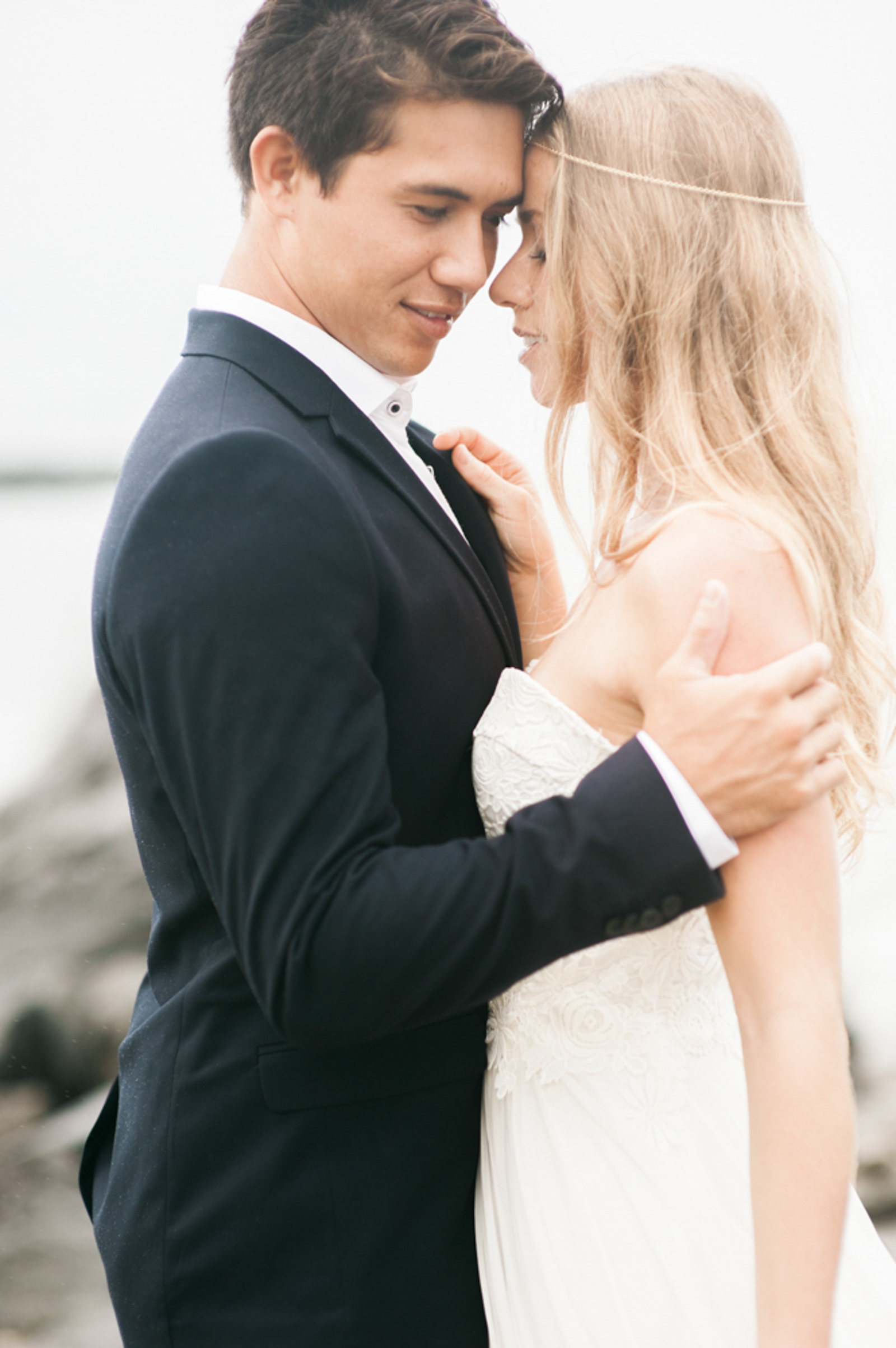Embarking on a career in photography opens the door to a world full of creativity and endless possibilities. As you consider this path, professional photography becomes not just a job but a lifestyle where your lens captures unique moments and tells compelling stories. Embrace the flexibility of being a freelance photographer, which allows you to explore diverse genres from portraiture to landscapes at your own pace. Attending photography workshops can refine your skills, helping you stay ahead in this competitive field. Immerse yourself in this vivid profession, where every shoot is an opportunity to turn your passion into a successful and fulfilling career.

Understanding the Basics of Professional Photography
Navigating the essentials of professional photography starts with understanding the fundamental principles that define the craft. At its core, this involves mastering technical skills such as controlling lighting, composition, and exposure. Many aspiring photographers struggle with capturing the intended vision due to a lack of understanding of these basics, which can result in uninspiring images. To overcome this, enrolling in photography workshops can be immensely beneficial, providing hands-on experience and guidance from more experienced professionals. These workshops create an invaluable platform for budding photographers to hone their skills and gain industry-specific insights.
Another common challenge in pursuing a career in photography is distinguishing your unique style in a saturated market. As a freelance photographer, it can be daunting to stand out among peers. Developing a personal brand can be the key to tackling this issue. You can achieve this by experimenting in different photography genres and honing your distinctive voice and perspective. A well-defined style not only sets you apart but also attracts clients who resonate with your artistic vision, thereby solidifying your place in the professional photography arena.
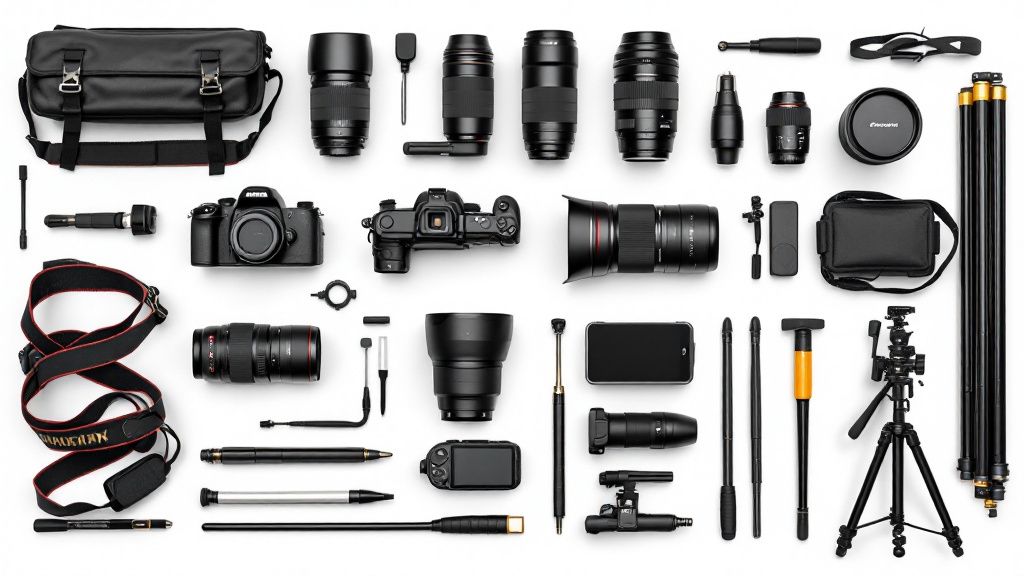
Essential Equipment for Aspiring Photographers
The foundation of any successful photography career lies in having the right equipment. Your journey begins with selecting a quality camera, which is the cornerstone of your kit. As an aspiring photographer, you might consider investing in a DSLR or mirrorless camera known for their versatility and image quality. A good camera allows you to capture detailed images and adapt to various shooting conditions.
Alongside a robust camera, lenses are crucial for versatility in professional photography. Starting with a standard prime lens can help you explore multiple styles, from portraits to landscapes. A zoom lens, on the other hand, offers flexibility, letting you adjust for different focal lengths without changing lenses. This varied approach helps broaden your skills in capturing diverse subjects.
Having dependable accessories like tripods and external flashes can immensely enhance your work quality. These tools provide stability and extended lighting options, essential for capturing sharp and well-exposed images. Many budding photographers underestimate the importance of such gear, but incorporating these into your toolkit can make a significant difference in your output.
One of the most frequently asked questions about building your photography career is, “What essential gear should I invest in first?” With a modest budget, start by acquiring basic gear and progressively expand as your skills and career develop. Participating in photography workshops can also offer insights into the most effective equipment, ensuring that you’re well-prepared for both freelance photographer gigs and more formal professional photography settings.
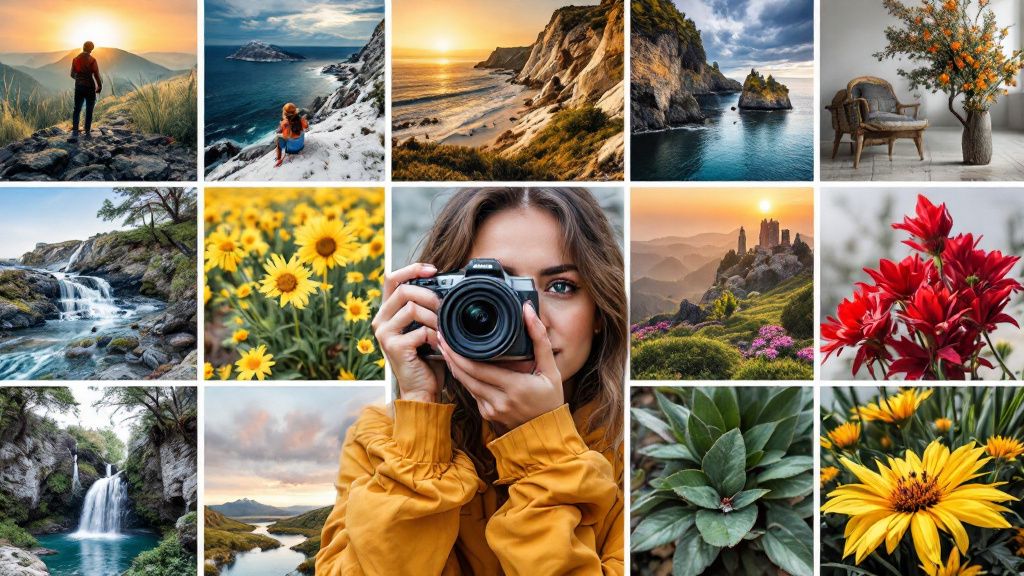
Developing Your Unique Photography Style
Discovering your unique photography style is a journey of self-expression and creativity. By experimenting with various techniques, you explore different visual narratives that resonate with your personal taste. This process not only defines your artistic signature but also helps distinguish your work within the vast sea of professional photography. As you refine your aesthetic, keep in mind that your style will evolve over time, reflecting your growth and experience in the field.
Engaging in diverse photographic opportunities is essential to developing a unique style. As a freelance photographer, every shoot you take on becomes a canvas to experiment and innovate. Whether it’s portraiture, street photography, or landscape, each genre offers lessons and insights that contribute to shaping your individual perspective. The more you practice, the more your style emerges organically.
Photography workshops provide invaluable feedback and inspiration. Did you know? A recent survey indicated that more than 60% of developing photographers credited workshops for expanding their style and creativity. By interacting with peers and industry veterans, you gain new viewpoints and constructive critiques that challenge and enhance your personal style.
Embrace the process of editing as a critical aspect of your stylistic development. Photo editing is where your creative vision comes to life, allowing you to manipulate light, color, and composition in ways that reinforce your unique style. Through regular practice and thoughtful experimentation, you’ll find your voice within the expansive world of professional photography, positioning yourself for a rewarding career in photography.

Types of Photography Careers to Consider
Exploring the different types of photography careers is like walking through a colorful gallery, each room displaying distinct but connected worlds. Picture yourself in editorial photography, where storytelling through compelling images takes center stage, aiming to capture the narrative essence that words alone cannot convey. It’s a path that aligns well with those who have a knack for weaving visual stories and engaging with diverse audiences.
Another vibrant room is filled with the thrill of sports photography. Here, the action-packed moments and bursts of emotion are your subjects, akin to capturing fireworks in the night sky. It’s a demanding yet rewarding career that requires quick reflexes and the ability to anticipate the perfect shot, making it ideal for those who thrive in dynamic, high-energy environments.
Think of wedding photography as a delicate ballet performance. Just like choreography blends music and movement, it merges artistry with the significant milestones of people’s lives. This career path allows you to immortalize love stories, playing a crucial role in one of the most joyous occasions many people experience. It’s perfect for photographers who value sentimentality and enjoy working closely with clients.
If adventure calls, consider travel photography, depicting diverse cultures and landscapes akin to painting vast canvases. This career suits those with a wanderlust spirit who yearn to capture the world’s beauty, from bustling city streets to serene natural vistas. Each path in the photography career offers unique opportunities, allowing you to pursue a professional photography niche that aligns with your passion and expertise.

Building a Portfolio that Shines
Creating a standout portfolio is an essential step toward success in your photography career. Your portfolio acts as a visual resume, showcasing your skills, approach, and creative flair. When building this collection, it’s crucial to display a variety of work that exemplifies your style while also highlighting versatility across different photography genres. This balanced representation can make a compelling case for your capabilities as a professional photographer.
Comparing digital portfolios versus traditional printed portfolios, each format offers distinct advantages. Digital portfolios are easily shareable and accessible, making them ideal for reaching global clients swiftly as a freelance photographer. In contrast, printed portfolios provide a tactile experience, which can be more impactful during in-person meetings, allowing potential clients to experience the depth and detail of your work substantively.
Including feedback from peers and mentors can elevate your portfolio’s quality. Feedback sessions, often a feature in photography workshops, offer critical insights and perspectives that might not have been considered. Incorporating these suggestions ensures your selection of images effectively communicates your brand and vision. By thoughtfully curating your portfolio, you create a reflection of your journey in professional photography, ready to open doors to new opportunities.

Networking and Community Engagement
Networking and community engagement are vital components of growing your career in photography. Building relationships within the photography community opens doors to collaborations, mentorships, and potential clients. Many photographers view these connections as the backbone of their career growth, providing essential support and opportunities. Networking events, both online and in-person, offer platforms to share ideas, showcase work, and form lasting professional bonds.
On one hand, some photographers view networking as a way to build a solid reputation, emphasizing face-to-face interactions through local community events or photography workshops. They believe these interactions foster trust and lifelong partnerships. On the other hand, others argue that online communities allow for widespread reach and diverse connections, harnessing social media platforms to engage with a global audience and participating in virtual groups.
Community engagement also involves giving back by sharing your expertise and supporting other aspiring photographers. By participating in teaching sessions or mentoring programs, you contribute to the collective growth of the photography field. This reciprocal exchange enriches your own skills and maintains a thriving, vibrant community. Such involvement reflects your dedication and passion for your career in professional photography, positioning you as a valuable member of the creative industry.
